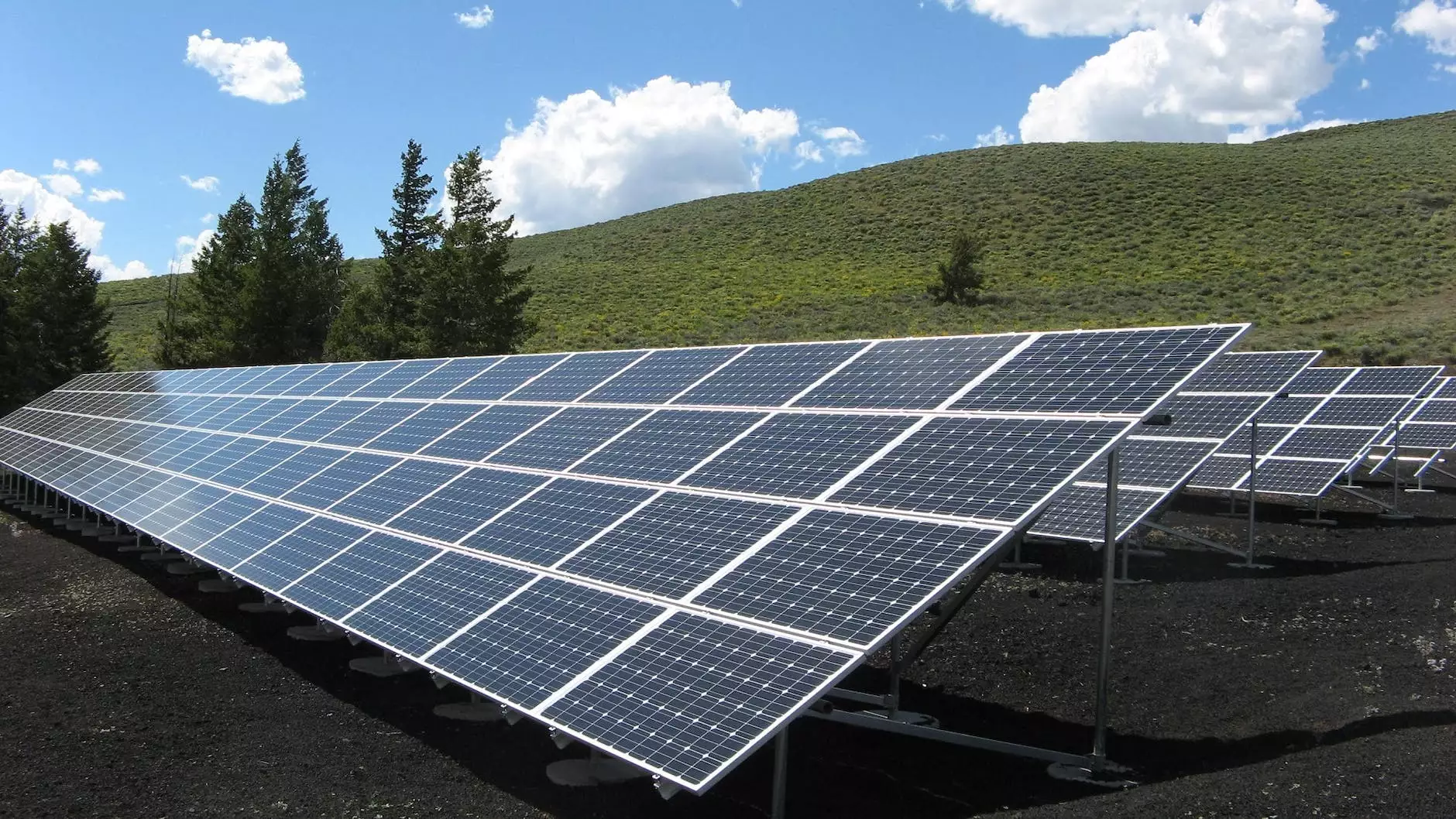Residential Solar Power Systems: Harnessing Clean Energy for a Brighter Future

The Benefits of Residential Solar Power Systems
In recent years, there has been growing concern over the impact of traditional energy sources on the environment. As individuals and communities strive for a more sustainable future, residential solar power systems have emerged as a game-changer. These systems harness the power of the sun, providing homeowners with a clean and reliable source of energy. Let's delve into the numerous benefits that residential solar power systems offer.
1. Lower Energy Costs
With residential solar power systems, homeowners can significantly reduce their energy bills. By generating their own electricity through solar panels, they can rely less on expensive utility companies. Furthermore, excess energy produced by the system can be fed back into the grid, allowing homeowners to earn credits and further offset their energy costs.
2. Environmentally Friendly
Unlike conventional energy sources that rely on fossil fuels, residential solar power systems produce clean energy without releasing harmful greenhouse gases. By choosing solar, you are making a positive impact on the environment, reducing your carbon footprint, and helping combat climate change.
3. Increased Property Value
Investing in residential solar power systems can significantly increase the value of your property. Potential buyers are increasingly drawn to homes with solar installations, recognizing the long-term cost savings and environmental benefits. By going solar, you are not only securing a brighter future for yourself but also boosting the value of your investment.
4. Energy Independence
Residential solar power systems provide homeowners with a sense of energy independence. By generating their own energy, they become less reliant on traditional energy sources that are subject to price fluctuations and geopolitical tensions. It's empowering to know that you have control over your energy consumption and production.
Choosing the Right Residential Solar Power System
When it comes to selecting a residential solar power system, there are a few key factors to consider. Understanding your energy needs, evaluating the available space on your property, and working with reputable solar installers will ensure you make an informed decision. Let's explore these factors in detail.
1. Energy Needs Assessment
Start by assessing your energy needs. Analyze your previous energy bills to determine how much electricity your household consumes on average. Consider factors such as seasonal variations, energy-intensive appliances, and future growth. This analysis will help you estimate the appropriate size of your solar system.
2. Available Space
The amount of space available on your property will determine the size and type of solar system you can install. Solar panels can be mounted on rooftops or ground-mounted, depending on the available area and orientation. In addition to space, consider shading from nearby trees, buildings, or other structures that could affect the efficiency of your system.
3. Working with Professionals
It's always recommended to work with experienced solar installers to ensure a seamless and efficient installation process. Research reputable companies, read customer reviews, and request quotes from multiple providers to compare pricing and services. Professional installers will guide you through the entire process, from system design and permits to final installation and maintenance.
Conclusion
Residential solar power systems offer a multitude of benefits, from reducing energy costs to promoting sustainability. Choosing to harness the power of the sun not only positively impacts the environment but also provides homeowners with increased energy independence and property value. By carefully evaluating your energy needs and working with professionals, you can make the transition to clean and renewable energy with confidence. Take the first step towards a brighter future and explore the possibilities of residential solar power systems today.










